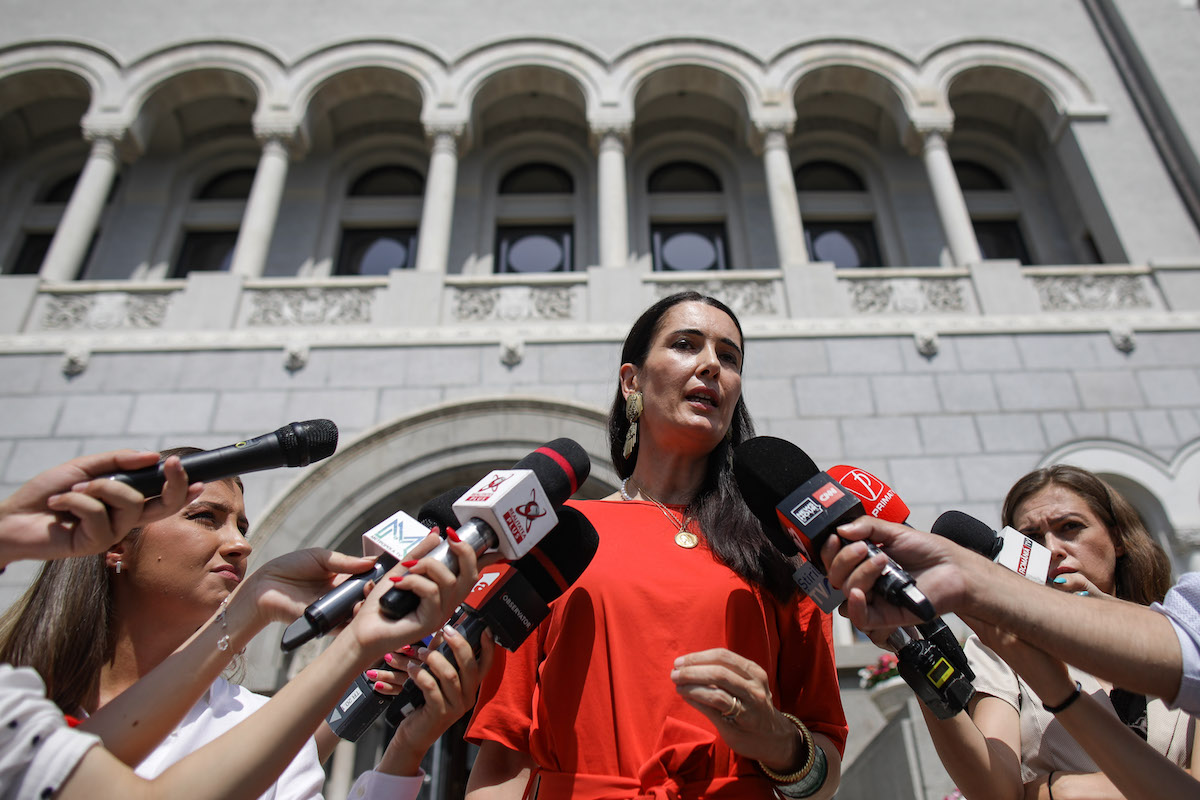In presidential elections, domestic issues such as the economy are typically the preeminent issue, but with war raging in the Middle East, and U.S. intelligence agencies warning of an “imminent” Iranian attack on Israel in response to an alleged Israeli airstrike on Iran’s consulate in Syria, which killed several high ranking Iranian officers, the chaos in the Middle East will likely play an outsized role in this year’s election.
In that same vein, a prolonged or expanded conflict poses a considerable risk to President Biden’s reelection chances, as the longer a war goes on, the more public opinion will turn against Biden.
Further, a longer war risks the very real, and very tragic possibility that more Israeli hostages will be killed at the same time Biden has publicly been restraining Israel’s military campaign, marking a very significant reversal from the strong support Biden offered the Jewish State in the immediate aftermath of the October 7th attack.
And, should the war expand, as it looks set to, given the likelihood of an Iranian retaliation, it will further weaken Biden, as energy prices soar and American troops are put in harm’s way.
Domestically, any widening of the war will exacerbate the already intense pressure Biden is under from the left-wing of his party due to his support for Israel, and worsen what Stevie O’Hanlon, communications director for the progressive Sunrise Movement, has described as Biden’s “trouble with young voters and voters of color.”
To that point, Progressives’ discontent has already shown up in the Democratic primaries. In the 38 states or territories that have voted thus far, the “uncommitted” protest vote has hit double digits in nine of them, including critical swing states such as Michigan (13%), North Carolina (13%).
This protest vote, largely being driven by Arab American, young, and progressive voters could erode the very bloc of voters Biden most needs to win, particularly in an election like this year with two well-known candidates and well-defined bases of support.
Of course, it’s possible that in the general election most of those voters will fall in line behind Biden but it is also possible that a sufficient number of voters either stay home or vote for a third party candidate out of frustration.
And with the race projected to be razor-thin, that may be enough to tip the election to Trump.
Critically, the bloc of voters most angry with Biden over his support for Israel is coming from groups which backed him by wide margins in 2020, but are fiercely opposed to how the president has handled the war.
Nearly one-quarter (23%) of Generation Z voters say Biden is “most responsible” for the humanitarian crisis in Gaza. That is almost double the share who hold Israeli Prime Minister Benjamin Netanyahu responsible (12%), and significantly higher than the 10% who blame the Israel Defense Forces, as well as the 8% who say Hamas bears ultimate responsibility, per a Newsweek poll.
The impact of the war goes beyond the youth vote. Two-thirds of Black voters oppose further American aid to Israel according to Quinnipiac polling, and at the end of January more than 1,000 Black pastors issued a public statement pressuring the White House to do more to secure a ceasefire.
Moreover, female voters, 57% of whom backed Biden in 2020, are fiercely against the war. More than 6-in-10 (61%) women said they disapprove of Israeli military action in Gaza in a recent Gallup poll.
In the wake of the tragic accidental Israeli drone strike which killed seven international aid workers, calls for Biden to do more to end the violence, and anger over the continued fighting are certain to grow.
To try and stem the criticism, the president has noticeably shifted his approach to Israel, with unprecedented public statements criticizing Netanyahu, including most recently saying that Netanyahu’s approach is “a mistake” and previously accusing Israel of “indiscriminate” bombing and saying Israel’s military operation is “over the top.”
In many ways, Biden is stuck between a rock and a hard place. If he leans too far to the left and tries to placate the dissenters in his own party, he runs the very real risk of alienating Jewish voters – a sizable voting bloc in the swing states of Pennsylvania, Arizona, Michigan, and Nevada.
Similarly, further moves by Biden to increase the pressure on Israel or curtail American support could hurt him with the large majority (79%) of Americans who support Israel over Hamas, want Hamas removed from power (77%), oppose a ceasefire before the hostages are released (63%), and the smaller majority (54%) who think Biden’s turn away from Israel is due to political threats from the Democratic base, rather than what is best for Israel and the world, according to Harvard-Harris polling.
On the other side of the aisle, the war does not seem to pose as great a threat to Donald Trump, despite his recent comments telling Netanyahu to “get it over with” and blasting the footage coming out of Gaza as costing Israel “the PR war.”
Whether because Trump can, with some credibility, point to his pro-Israel moves while in office – moving the American embassy to Jerusalem and the Abraham Accords – or because Republicans are simply not as focused on the war compared to other issues such as the economy and inflation, the war will likely not have the same impact on Trump that it does on Biden.
Related Articles
While California politicians skirmish over housing, the shortage keeps growing
Trump and FISA: A fact check
Sacramento’s budget tricks might buy time, but won’t fix the state’s budget problem
All students – including English learners – deserve to learn to read
Larry Elder: The progressive, NPR-listening ‘elite 1%’
However, as Trump has frequently used the war as a wedge issue, most recently saying that, “Any Jewish person that votes for a Democrat or votes for Biden should have their head examined. He (Biden) totally abandoned Israel” it can be reasonably assumed that Trump will continue focusing on the conflict to drum up support with Jewish voters and further stoke anger among Biden’s base.
Ultimately, while the course of the war remains unknown – specifically how much longer the fighting will rage, or if it will expand to further engulf the Middle East – all signs point to the war playing an outsized role in November’s presidential election, and Biden’s reelection bid.
Even if the war does not overtake the economy, inflation, or immigration as voters’ top concern, the growing criticism of Biden coming from within his own party and the size of the protest vote make it clear that on this issue, Biden is in serious jeopardy with the voters he most needs, and that could be enough to swing the election to Donald Trump.
Douglas Schoen is a longtime Democratic political consultant.





